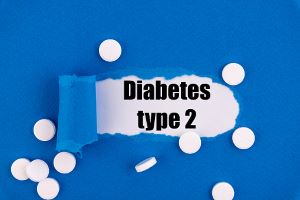Can type 2 diabetes be cured permanently? At this time, there is no cure for diabetes of type 2. But, in the future, it is likely that we’ll have more weapons to defeat this disease once and for all.
Type 2 Diabetes is, indeed, the most critical disease of the 21st Century. Moreover, nowadays, it is largely spread, and not only in the Western world. It is also a common companion of aging and affects both men and women who are over 50 years old.
This ailment is a true global scourge which brings with itself a long chain of unpleasant consequences, such as cecity, cardiovascular diseases and amputation.
That is why patients wonder how to cure type 2 diabetes permanently.
However, current treatments aim to reverse the progression of diabetes of type 2 or take it into remission, but, actually, these treatments don’t cure diabetes permanently. Why? The answer resides in the same nature of this disease. Discover more about it.
Type 2 Diabetes: What is It?
Type 2 diabetes is caused by an unbalance in the level of blood sugar (glucose). The latter becomes too high and resistant to the insulin produced by the pancreatic cells. For this reason, diabetes of type 2 is also called insulin resistant diabetes.
Once that diabetes 2 triggers, it is very hard to heal. To not have this type of diabetes, the only solution is to prevent it with diet and exercise.
However, when type 2 diabetes occurs, you must do all you can to keep it under control. There are several solutions to slow the advancement of this disease and stop its symptoms and its unpleasant secondary diseases. These solutions come from the world of food and medicine. You’ll find them listed below.
Protein Diet for the Remission of Type 2 Diabetes

Crash diet and weight loss can facilitate diabetes of type 2 remission. Let’s be clear: remission does not mean we can cure diabetes permanently, but only that we can soothe the symptoms of the disease with evident benefits on the quality of life.
A study of the Aston University of Birmingham, in fact, observed the effects of protein diet and diet with food replacement in people under 50 years old who have been diagnosed with diabetes of type 2 for 6 years, at least.
The British study, conducted on 90 patients, revealed that a crash diet such as the protein one, can get diabetes of type 2 to remission.
“Be careful – Dr. Carmine Gazzaruso, Professor of Endocrinology at the University degli Studi in Milan, said – type 2 diabetes remission does not coincide with healing, but with a condition where you don’t have signs and symptoms of the disease. In case of type 2 diabetes, the primary signs of the disease are: intake of medicines, glycate hemoglobin over 6.5% and blood sugar over 126”.
The Italian doctor released his statement to an Italian magazine. He also is in charge of the service of Diabetology, Endocrinology, Cardiovascular and Metabolic Diseases at the Clinical Research Center of the Clinical Institute Beato Matteo in Vigevano, Italy.
According to the aforementioned study, the types of diet which can facilitate the remission of type 2 diabetes are:
- Ketogenic or Protein Diet
- Diet with food replacement
- Mediterranean diet (the latter has minor effects).
Ketogenic or protein diet is low carb and mainly made with high protein food. With this type of diet, the intake of proteins overcomes the one of carbohydrates.
This is a crash diet also called “shock diet”, where the daily intake of carbohydrates is less than the 10% of the normal daily intake. The diet also includes meal replacement or intermittent fasting, where you take no food and no drinks, excluding water, for 16 hours a day.
These dietary strategies make you lose weight and improve blood sugar and insulin levels, but according to another study – always performed by Italian scientists- this diet is safe only for diabetes of type 2 associated with obesity.
In this diet, indeed, the imbalance between carbohydrates and proteins is very strong. The former are drastically reduced, while the latter get drastically increased.
Protein foods are often rich in saturated fats and this feature may cause kidney and vascular damages.
A high protein diet can also be toxic for kidneys and cause the so-called ketosis.
For this reason, this type of diet can’t last for a long time.
With the strategy of food replacement, instead, common carbohydrates, such as bread made of refined wheat flour, are replaced with high protein cereals, such as soy or dry fruit, such as hazelnuts.
I always have breakfast with raw hazelnuts, because I suffer from an unbalance of blood sugar due to Hashimoto’s thyroiditis. 100 grams of nuts contain 15 grams of proteins and 17 grams of carbohydrates!
The protein/carbohydrate ratio is perfectly balanced. While, with modern cereals, which are processed and genetically modified, the ratio between carbohydrates and proteins is fully unbalanced.
If you observe the ingredients of common foods, you’ll find that they have 70% of carbohydrates and 7% of proteins! Namely: a ratio of 10 to 1!
When you take a high percentage of carbohydrates, you experience a blood sugar spike.
These spikes have heavy consequences on the function of pancreas, because, as confirmed by another study, ageing and senescence are detrimental for the function of pancreatic Beta cells, which meet a rapid age-related decline. These cells produce insulin, the hormone which counteracts the excess glucose in the blood.
Modern cereals are very high in carbohydrates and sugar. A drastic reduction of their daily intake, and a balanced ratio with proteins is the first step to prevent type 2 diabetes or get it to remission.
That is why diabetes of type 2 is also called “food-borne diabetes”.
“The fact that at a certain stage, you obtain the remission of type 2 diabetes – Dr. Gazzaruso said– it does not mean that the causes making blood sugar rise go away. If you get to a blood sugar remission, which goes down to less than 126, insulin resistance improves, but the risk factors could remain in place and cause cardiovascular diseases… With diet, the microcirculation risk gets zeroed. For eyes, kidneys and nervous system diseases, indeed, the risk is mainly linked to blood sugar instead of the insulin resistance, but the risks linked to the microcirculation system remain”.
“However, a carbohydrate free diet can’t be prolonged for a long time – Dr. Gazzaruso still said -. Because our body tends to obtain energy from proteins and fats, but excess proteins and fats may have dangerous consequences on kidneys and on the vascular system and can’t be taken for a long run”.
It is at this stage, that, according to the Italian diabetologist, the original Mediterranean diet plays a key role to keep diabetes of type 2 under control.
By the way: Mediterranean diet does cause the remission of type 2 diabetes, but, after you lost 10 or 15 kgs with a crash diet, a regular diet rich in fruit, vegetables, fibers and a balanced intake of carbohydrates and proteins allows you to maintain your weight loss over time, provided that you accompany that with regular exercise.
As regards this aspect, it has also been observed that patients who followed a combined lifestyle of diet and exercise are more likely to get their diabetes type2 into remission than the ones who followed only the dietary therapy.
To get the remission of food-borne diabetes, lifestyle is the key. Obviously, when this disease also has genetic roots, it is impossible to obtain remission without medications.
Is There a Medicine that Cures Type 2 Diabetes Permanently?
As regards drugs to cure diabetes of type 2, a Danish study made an amazing discovery. It seems, in fact, that a medicine for osteoporosis prevents the occurrence of this metabolic disorder.

Usually, osteoporosis occurs in menopausal women, but most of the subjects of this clinical trial were 67-year-old men, treated, for 8 years, with a common drug for osteoporosis, bisphosphonate alendronate.
These patients showed a minor risk to develop diabetes of type 2 in comparison with other untreated subjects.
The results have been presented to the congress of the European Association for the Study of Diabetes 2021.
There are similar studies about this matter, but the effectiveness of this treatment unfortunately has not been supported by other data on lifestyle and exercise practiced by these patients.
The only insight, which needs to be further explored, is that the metabolism of bones and glucose influence each other, but it remains to discover the exact mechanism explaining this relationship, where inflammation and oxidative stress may be involved, also.
Conclusion
As you can see, the therapy to cure type 2 diabetes permanently has still to come. We have only promising studies and the experience of patients. In my view, processed food containing hidden sugars may be the main cause of food-borne diabetes and avoiding this type of food should be mandatory to lower the risk of developing this metabolic disease.
Hypotheses and theory don’t always help, but aside from other opinions, if you manage to get a partial remission of your type 2 diabetes, let me know. I’ll be happy to share your story here.
References & Bibliography
- Dr. Carmine Gazzaruso, Professor of Endocrinology at the University degli Studi in Milan, in charge of the service of Diabetology, Endocrinology, Cardiovascular and Metabolic Diseases at the Clinical Research Center of the Clinical Institute Beato Matteo in Vigevano, Italy.
- Maria Elena Perrero – Diabete di tipo 2, la remissione grazie alla dieta: lo studio – October 27, 2021 – Salute-Gazzetta.it
- Moriconi E, Camajani E, Fabbri A, Lenzi A, Caprio M. Very-Low-Calorie Ketogenic Diet as a Safe and Valuable Tool for Long-Term Glycemic Management in Patients with Obesity and Type 2 Diabetes. Nutrients. 2021;13(3):758. Published 2021 Feb 26. doi:10.3390/nu13030758
- Brown A, McArdle P, Taplin J, Unwin D, Unwin J, Deakin T, Wheatley S, Murdoch C, Malhotra A, Mellor D. Dietary strategies for remission of type 2 diabetes: A narrative review. J Hum Nutr Diet. 2021 Jul 29. doi: 10.1111/jhn.12938. Epub ahead of print. PMID: 34323335. https://pubmed.ncbi.nlm.nih.gov/34323335/
- Helman A, Avrahami D, Klochendler A, Glaser B, Kaestner KH, Ben-Porath I, Dor Y. Effects of ageing and senescence on pancreatic β-cell function. Diabetes Obes Metab. 2016 Sep;18 Suppl 1:58-62. doi: 10.1111/dom.12719. PMID: 2761513. https://pubmed.ncbi.nlm.nih.gov/27615132/
- Viggers R – “Alendronate use and risk of type 2 diabetes: a Danish population-based case-control study” EASD 2021; Abstract 71. https://cdn.ps.emap.com/wp-content/uploads/sites/3/2021/09/71alendronate.pdf
- Davide Cavaleri – Si può prevenire il diabete di tipo 2 grazie a un farmaco contro l’osteoporosi? #EASD2021 – October 8, 2021 – Pharmastar – https://www.pharmastar.it/news/diabete/si-pu-prevenire-il-diabete-di-tipo-2-grazie-a-un-farmaco-contro-losteoporosi-easd2021-36556
.
